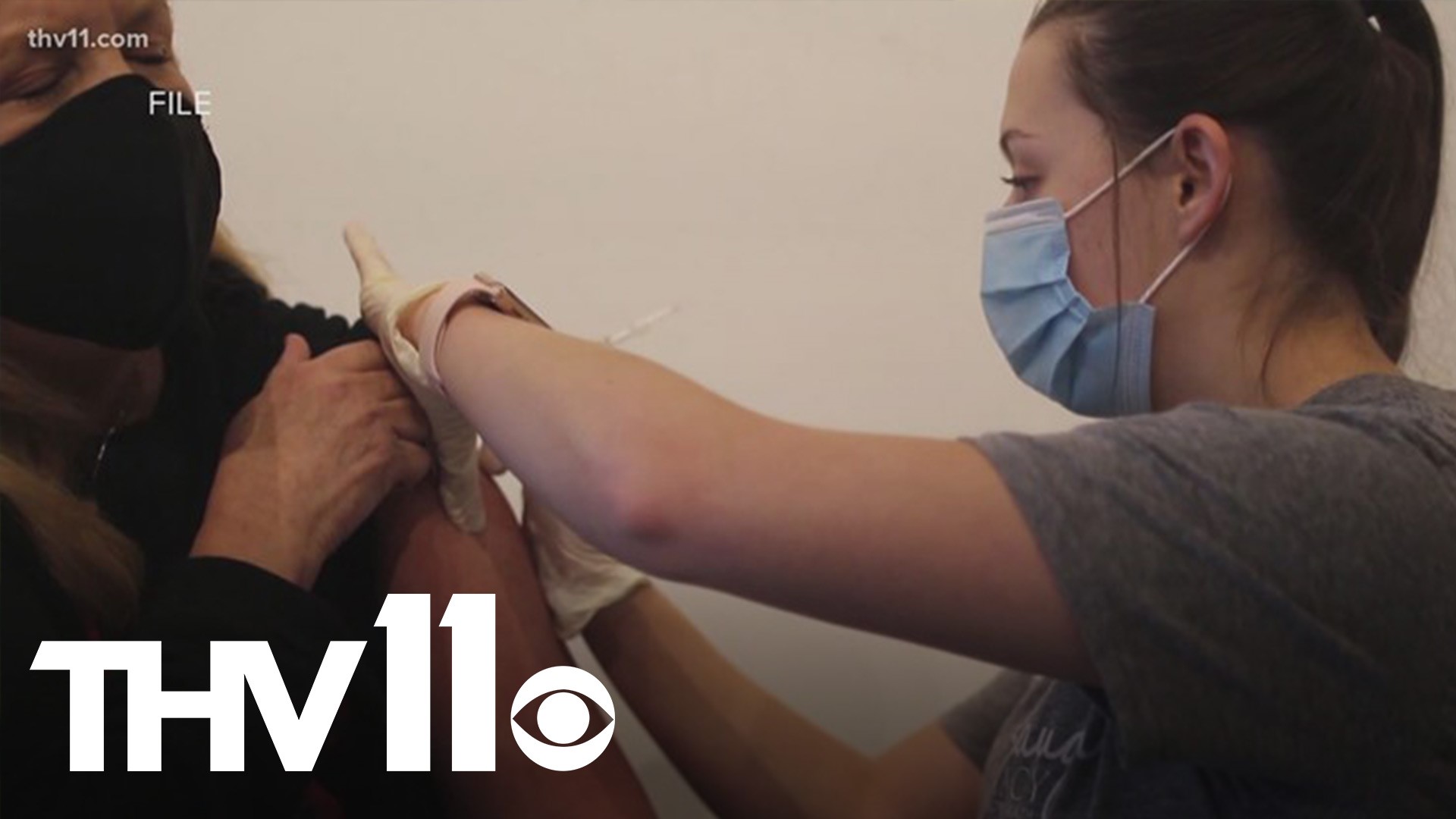LITTLE ROCK, Ark. — A Little Rock doctor is warning people who get vaccinated to not let their guard down because there is still a risk of infection.
"The vaccines are a layer of protection, but they're not everything," Dr. Robert Hopkins said.
Getting the COVID-19 vaccine is certainly a relief for many. But, Dr. Robert Hopkins at UAMS said this does not mean you should throw your face mask away just yet.
"I don't think it's quite time for us to step away from all our other layers of protection," he said.
The risk of getting seriously sick is lower once you are vaccinated, especially for those 70 and older. But, there is still not enough data to know if you can still spread the virus. That's why it is still important to social distance from your unvaccinated loved ones.
"Even if I have a very mild illness after taking the vaccine, I don't want to take a chance on giving you something that is going to make you very ill," Dr. Hopkins said.
So, when can grandparents who have been vaccinated safely visit their grandchildren?
"As we get more vaccines available and we're able to vaccinate your children and your grandchildren ...we're going to get to a point where we're going to be able to open up and go back to what we used to consider normal life," Dr. Hopkins said.
Dr. Hopkins believes we could get to this point by the summer.
"Our biggest limitation right now is enough vaccine to vaccinate," he said. "We have more demand than we do vaccine."
It is also important to continue to avoid crowds and unnecessary travel. Dr. Hopkins is concerned about the new variants of COVID-19 popping up around the country that may be more contagious. Scientists are still learning if the vaccine will protect you from these variants.
"Backing off on our masks, backing off on our precautions just means we're exposing ourselves to additional risk," Dr. Hopkins said.
So, don't let your guard down once you're vaccinated. He recommends continuing to practice the proper guidelines until the majority of the population is vaccinated.
"I would rather be a bit more patient. Work on the things we can do to minimize the transmission of the disease rather than take a chance," Dr. Hopkins said.

